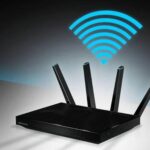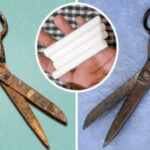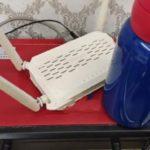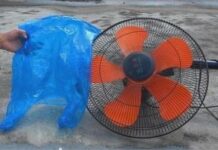Position Your Router in a Central Location
Since routers send signals in all directions, placing it near a window or in a corner will result in a significant amount of signal being wasted outdoors.
Avoid Placing the Router on the Floor
The router’s signal weakens with distance and when passing through solid materials such as metal, concrete, or cement. Therefore, it is advisable to place the router on a table or a high shelf to prevent interference from these materials.

Router signals weaken with distance and when passing through solid materials.
Ensure the Router Is in an Open Space
Signals from the router can be obstructed by solid materials, so avoid placing it in confined areas or surrounded by too many objects.
Keep the Router Away from Other Electronic Devices
Electronic devices such as microwaves, televisions, and cordless phones can interfere with the router’s signal. Therefore, maintain a safe distance between them.
Keep the Router’s Antenna Upright
Signals from the router propagate perpendicular to the antenna. Thus, if the antenna is vertical, the signal will spread horizontally. Avoid improper tilting or angling of the antenna.
Do Not Place These 3 Objects Next to Your Router: When the router is operational, it continuously transmits and receives signals. Any obstruction or weakening of the signal will impact your network speed. Therefore, it is advisable to avoid placing the following three objects near the router.

Do not place these 3 objects next to your router.
Large Metal Objects
Metal is an electrical conductor and can interfere with signal transmission, especially if the objects are large. For instance, when you enter an elevator and the doors close, your phone signal often weakens or disappears entirely. Thus, it is advisable to keep metal objects away from the router to ensure uninterrupted signals.
Common Household Appliances
Some people find it convenient to place the router close to household appliances such as computers, microwaves, or electric kettles. However, if placed too close to these appliances for an extended period, the router’s signal may be disrupted, affecting your network speed.
Toughened Glass
Objects such as glass flower pots or fish tanks made of high-density glass can obstruct signals. If placed next to the router, the signal strength may gradually weaken over time.
Additionally, another common reason for weak signals is the continuous operation of the router for extended periods without being turned off. When the router overheats, its internal components can be affected, leading to cache memory issues. Turning off the router for half an hour to let it rest before turning it on again can significantly improve network speed.







































